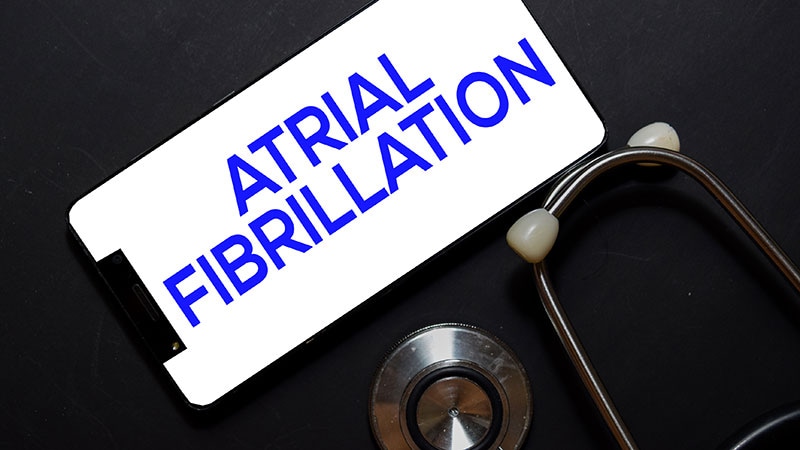Researchers published the study covered in this summary on Research Square as a preprint that has not yet been peer reviewed.
Key Takeaways
-
Adults not receiving glucose-lowering drugs showed a stepwise, increasing risk of developing atrial fibrillation (AFib) that tracked with increasing levels of A1c from 5.8% to 7.6% (40 to 60 mmol/mol).
-
Patients with new-onset diabetes had a similar risk of developing AFib as patients with known (established) diabetes, after multivariable adjustment. This contrasts with prior reports that found increased risk with increased duration of diabetes.
-
The findings also showed similar stepwise increases in the rate of stroke, cardiovascular mortality, and all-cause mortality that tracked with A1c levels among subgroups of patients with prediabetes, new-onset diabetes, and known diabetes.
Why This Matters
-
Prior evidence had shown diabetes to be associated with increased rates of AFib, stroke, cardiovascular mortality, and all-cause mortality. The results of this study add prediabetes as a significant risk factor for incident AFib.
-
Treatment of prediabetes with an antiglycemic medication might prevent progression to diabetes and reduce the risks of diabetes-related adverse outcomes.
-
This information might help development of strategies to prevent the incidence of AFib in people with dysglycemia as well as in people with overt diabetes.
Study Design
-
The researchers analyzed data from 354,807 adults in Denmark’s Copenhagen region aged 30 and older who had an initial A1c measurement taken at a single Copenhagen facility during 2007 through 2015 and were followed until December 31, 2018, for a minimum of 3 years.
-
At study entry, the researchers stratified patients into four groups: no diabetes (A1c < 6%; < 42 mmol/mol), prediabetes (A1c 6%-6.4%; 42-47 mmol/mol), known diabetes (A1c at least 6.5%; at least 48 mmol/mol), and new onset diabetes (A1c at least 6.5%; at least 48 mmol/mol).
-
The primary outcome was new onset of AFib; secondary outcomes were incident stroke, cardiovascular mortality, and all-cause mortality.
Key Results
-
At baseline, 8% of the patients had known diabetes, 4% had new-onset diabetes, 8% had prediabetes, and 80% had no diabetes.
-
Male gender, hyperthyroidism, hypertension, ischemic heart disease, cancer, and lower level of education each associated with a higher rate of AFib.
-
Compared with patients without diabetes, AFib incidence during follow-up significantly increased by a relative 12% in the prediabetes group, 16% in the new-onset diabetes group, and by 15% among those with known diabetes. These relative increases included adjustment for age, sex, baseline year, ischemic heart disease, cancer, renal disease, chronic obstructive pulmonary disease, and hypertension.
-
When researchers analyzed the relationship between incident AFib and A1c calculated as a continuous variable, the relative incidence of AFib rose in a steady, linear way by about 25% from an A1c of 40 mmol/mol (5.8%) to an A1c of 60 mmol/mol (7.6%).
-
The results also showed stepwise increases in the rates of stroke, cardiovascular mortality, and all-cause mortality in the subgroups with prediabetes, new-onset diabetes, and known diabetes.
Limitations
-
The reasons for the A1c blood tests were not known.
-
The researchers identified comorbidities from hospitalization records, which may underestimate the prevalence of certain comorbidities such as hypertension.
-
Asymptomatic AFib may have been missed.
-
The findings may not be generalizable to populations in other countries.
-
Since this was an observational study there may have been unmeasured confounders and hence the findings can show association but not causation.
Disclosures
-
The study did not receive commercial funding.
-
The authors reported no relevant financial disclosures.
This is a summary of a preprint research study, “Risk of atrial fibrillation in individuals with dysglycemia and diabetes,” written by researchers from several institutions in Copenhagen on Research Square and provided to you by Medscape. This study has not yet been peer reviewed. The full text of the study can be found on researchsquare.com.
For more news, follow Medscape on Facebook, Twitter, Instagram, and YouTube.
Source: Read Full Article
